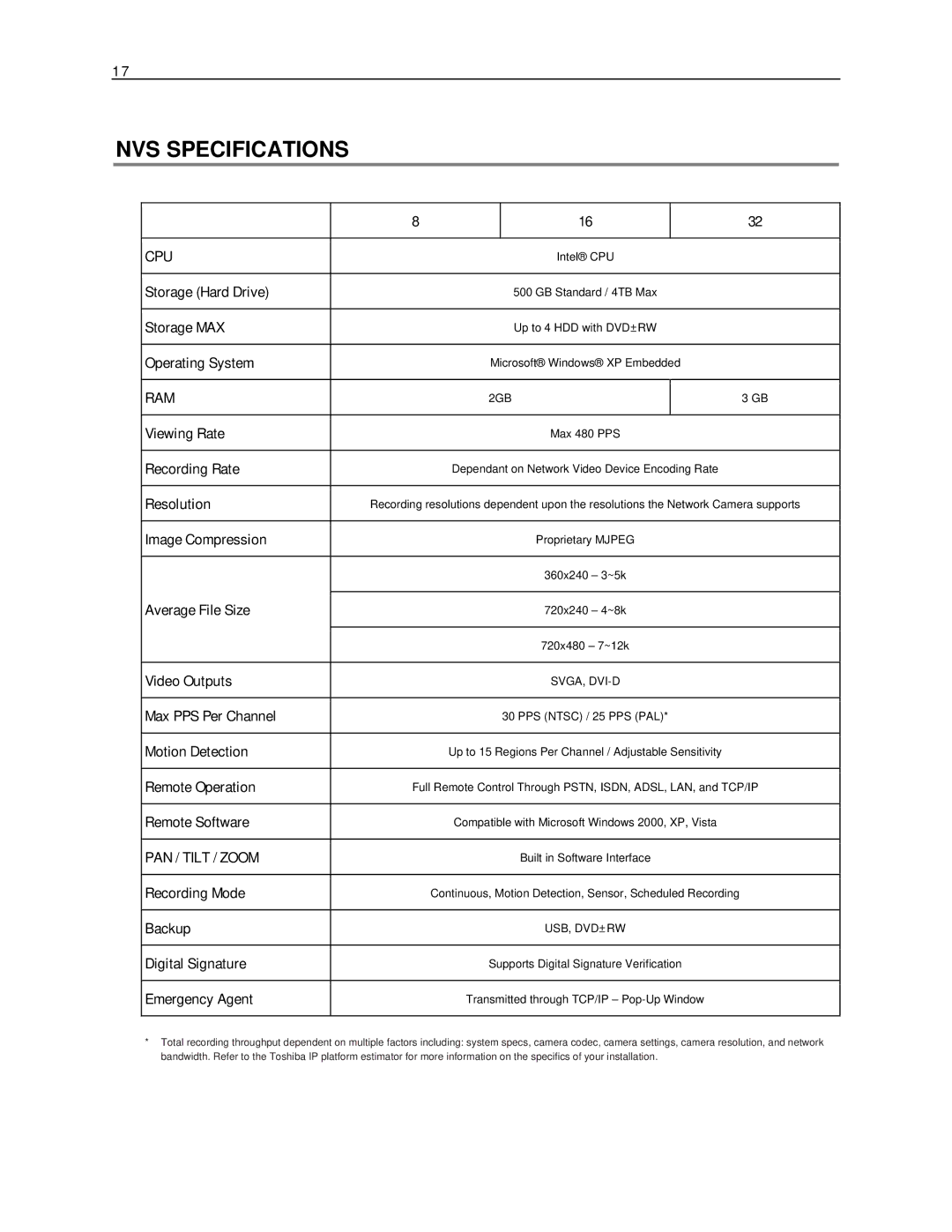NVS specifications
Toshiba NVS, or Non-Volatile Storage, represents a cutting-edge solution for data storage management, offering a blend of performance, reliability, and efficiency. Designed primarily for enterprise and high-performance computing environments, NVS technology caters to the growing demand for robust storage solutions that can handle significant workloads without compromising speed or integrity.One of the standout features of Toshiba NVS is its use of 3D NAND flash technology. Unlike traditional planar NAND, which has a limitation in density and performance, 3D NAND stacks memory cells vertically, enabling higher storage capacities in a smaller footprint. This innovation not only increases data density but also improves endurance and longevity, making NVS suitable for a wide range of applications from cloud computing to database solutions.
Toshiba's NVS is distinguished by its high read and write speeds, which are essential for data-intensive operations. The utilization of advanced controller technologies optimizes data processing, reducing latency and enhancing overall system responsiveness. This makes Toshiba NVS an excellent choice for applications requiring real-time data retrieval and processing, such as virtual machines and large-scale data analytics.
Another key characteristic of NVS is its power efficiency. Incorporating low-power consumption design principles, it helps enterprises minimize energy costs while maximizing performance. This can be particularly advantageous in cloud environments, where energy efficiency directly impacts operational costs and sustainability efforts.
Reliability is paramount in any data storage solution, and Toshiba NVS does not disappoint. With features like data protection technology and robust error correction mechanisms, it ensures data integrity, even in high-stress situations. Additionally, the series is designed to withstand various environmental factors, providing a level of durability that is critical for mission-critical applications.
Compatibility is also a strong suit of Toshiba NVS. The technology supports multiple interfaces, including NVMe and SATA, allowing for easy integration into existing infrastructures. This versatility enables businesses to upgrade their systems without the need for significant overhauls or compatibility concerns.
In summary, Toshiba NVS emerges as a formidable player in the realm of non-volatile storage solutions, combining innovative 3D NAND technology with high performance, reliability, and energy efficiency. Its robust feature set and compatibility make it an ideal option for enterprises looking to enhance their data storage capabilities while preparing for future demands. As technology continues to evolve, Toshiba NVS is poised to remain at the forefront of the storage industry.

